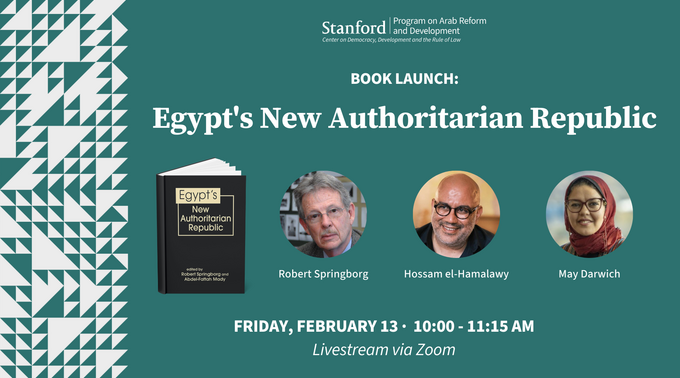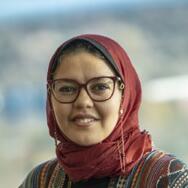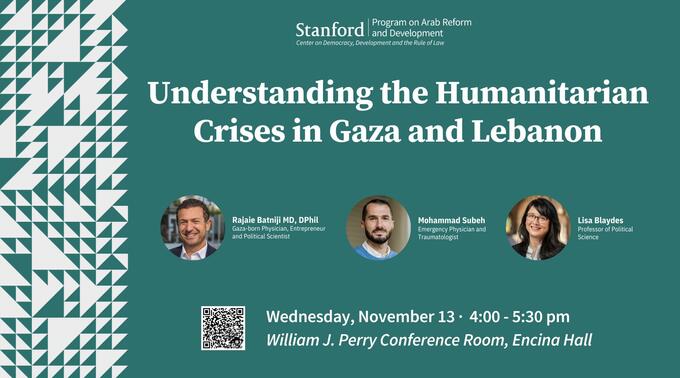Book Launch: Egypt's New Authoritarian Republic

To mark the fifteen-year anniversary of Egypt's January 25 Uprising, CDDRL's Program on Arab Reform and Development (ARD) invites you to a panel discussing major findings from the recently released edited volume, Egypt's New Authoritarian Republic, edited by Robert Springborg and Abdel-Fattah Mady and published by Lynne Rienner Publishers (2025).
MODERATOR: Hesham Sallam
SPEAKERS:
- Robert Springborg
- Hossam el-Hamalawy
- May Darwich
About the Speakers

Robert Springborg
Robert Springborg is a Research Fellow at the Italian Institute of International Affairs and an Adjunct Professor at Simon Fraser University. He has held various academic and consultancy positions focused on the Middle East, including the MBI Al Jaber Chair in Middle East Studies at the School of Oriental and African Studies (SOAS) and Director of the American Research Center in Egypt. He was a Professor of National Security Affairs at the Naval Postgraduate School and a Professor of Middle East Politics at Macquarie University in Sydney, Australia. He was a consultant on Middle East governance and politics for USAID, the U.S. State Department, the UNDP, and UK government departments, and is a member of the Rowaq Arabi Editorial Board. He is the author of Egypt (2018) and Political Economies of the Middle East and North Africa (2020). He is also the Editor-in-Chief of the Routledge Handbook of Contemporary Egypt (2021) and co-editor of The Political Economy of Education in the Arab World (2021), The Egyptian Revolution of 1919: Legacies and Consequences of the Fight for Independence (2023), and Security Assistance in the Middle East (2023).

Hossam el-Hamalawy
Hossam el-Hamalawy is an Egyptian journalist, scholar, and activist whose work focuses on the security sector, labor movements, and the political economy of militarized state power in Egypt. He holds a PhD in Political Science from the Freie Universität Berlin, where his research examined the restructuring of Egypt’s policing and military institutions following the 2013 coup.
His forthcoming book, Counterrevolution in Egypt: Sisi’s New Republic (Verso, May 2026), analyzes the consolidation of authoritarian rule through security-sector expansion and counterrevolutionary governance. El-Hamalawy has written extensively in Arabic and English on authoritarianism, social movements, and foreign policy, with work published in leading international media outlets and academic venues.
He also authors 3arabawy, a newsletter providing in-depth analysis of developments within Egypt’s military and police institutions, alongside book reviews and an accompanying audio podcast. Beyond academia and journalism, el-Hamalawy has documented labor strikes and grassroots activism for over two decades. His work bridges scholarship and activism, offering a grounded analysis of state repression and resistance in contemporary Egypt.

May Darwich
May Darwich is Associate Professor in International Relations of the Middle East at the University of Birmingham. Her research engages Middle Eastern cases to advance debates in International Relations theory, focusing on themes such as threat perception, alliance politics, identity, and foreign policy. She is the author of Threats and Alliances in the Middle East: Saudi and Syrian Policies in a Turbulent Region (Cambridge, 2019).
Virtual event only via Zoom.


























